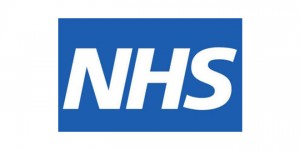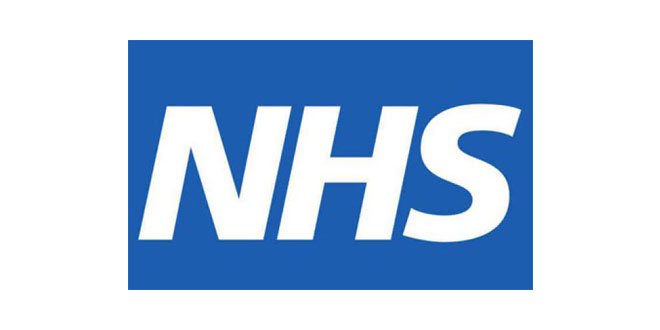NHS Will Not Be Able To Cope Unless Government Gets To Grip With The Social Care Crisis, Warns Doctors’ Leader
 The chair of the British Medical Association has warned that the NHS will not be able to cope unless the government gets to grips with the current social care crisis.
The chair of the British Medical Association has warned that the NHS will not be able to cope unless the government gets to grips with the current social care crisis.
In his New Year message, Dr Mark Porter, highlighted new BMA analysis of Sustainability and Transformation Plans (STPs)1 which shows the scale of cuts facing social care in England.
Previous analysis2 has found that STPs will have to deliver £26bn in cuts by 2020/2021 in order to balance health and social care spending across 44 ‘footprint’ areas, raising serious concerns about cuts to services and the impact on patient care. Areas of particular concern include Greater Manchester, North-West London, and Hampshire and the Isle of Wight, which all need to make saving of more than £1 billion each.
New BMA analysis3 has found that, while cuts to social care amount to £5bn of the overall £26bn that needs to be saved, in some areas cuts to social care are almost as great as those to health care. The social care crisis is already having a knock on effect in the NHS with hospitals struggling to find social care for patients, leading to delayed discharge and bed shortages. In the case of older patients in England, the number of unnecessary days in hospital cost the NHS more than £800 million last year.4
Speaking about STPs, Dr Porter, BMA council chair, said
“Sustainability and transformation plans have revealed a health service that is in fact unsustainable without urgent further investment, and with little capacity to ‘transform’ in any meaningful way other than by closing services on a drastic scale”
“STPs will only succeed if they are realistic, properly funded and have patient care as their priority. Although still in draft form the majority do not appear to meet these objectives.”
In his message, Dr Porter stressed that the NHS will not be able to cope unless the government addresses the social care crisis:
“STPs are meant to bring health and social care together, and in a grim kind of way they do. It is clear from many STPs that each is desperately trying to prop up the other, their crutches cracking under the weight.
“We have recently analysed social care’s share of the impending shortfall. In many areas, this is more than a quarter of the total, with combined deficits running into billions of pounds. It comes as social care is being cut in real terms, and the situation may worsen.
“When social care is on its knees, patients suffer delayed transfers, and the personal and financial cost is vast. We have found a correlation – as you’d expect – between the STP areas with the highest social care deficit and those with the highest proportion of delayed transfers for social reasons. With several STPs, including Nottinghamshire and Staffordshire and Stoke-on-Trent, proposing to cut hospital beds these problems are only going to be exacerbated.
“The British Geriatrics Society describes delayed transfers as ‘personally disastrous for elderly patients who are frail’. And it is not only older patients who are affected.
“Hospital doctors know that the surgical wards can fill up with medical patients because there are no other beds. So, the medical patients do not receive optimal care, and the elective patients are postponed. Two sets of patients facing needless suffering.”
At a time when the NHS is struggling to cope with increasing demand, Dr Porter questioned the reduction in the number of hospital beds across England:
“A recent BBC report5 found nearly half a million patients in England waiting for more than four hours after emergency admission, an almost five-fold increase in five years.
“The beds they are waiting for have been taken away in the name of cost-cutting and efficiency. According to the OECD6 the UK has fewer than half the beds of France and a third of Germany’s, per person – a difference in magnitude that cannot be explained away on definitions. That means daily, around the country, we have bed occupancy figures touching 100 per cent, one of the few NHS statistics that does. It’s a measure of ‘efficiency’ that is anything but efficient, and wreaks havoc with efforts to control infections and ensure patients are given the care they need.
“The Nuffield Trust7 has linked high bed occupancy with longer waiting times before admission, distress for patients as they are more likely to be moved around a hospital, and a greater risk of infection.”
Looking back at 2016, Dr Porter accused the government of ignoring the funding crisis facing the NHS and misusing funding figures:
He said:
“The chancellor, health secretary and prime minister have, at various points referred to a £10 billion increase in English NHS spending in this parliament.
“The ‘£10 billion’ actually equates to a £4.5 billion increase in overall health spending8.
“The health secretary said ‘whether you call it £4.5 billion or £10 billion, it doesn’t matter’9, I disagree. While any increase in health funding is welcome and desperately needed, this is the government taking credit for work they haven’t done and money they haven’t found. It corrupts the public debate. You also never hear them acknowledge how much of the ‘new’ money is being used to bail out trusts which are crippled by unworkable efficiency targets.
“We need a government that is willing to own its share of the challenges, not one that is obsessed with owning the headlines.”
Dr Porter also addressed the Brexit negotiations, calling for doctors and NHS staff from the EU to be respected and not just seen as ‘negotiating chips’.
Reflecting on the impact of Brexit on the thousands of doctors in the NHS from the EU, he said:
“In October, they were described by one cabinet member as one of the government’s ‘main cards’ in Brexit negotiations. So, to their patients they save lives, relieve pain and bring kindness and reassurance, but, to this politician at least, they are just negotiating chips.
“It’s a government that seems more interested in telling a bemused public whether its Brexit is hard, soft, red, white or blue than in looking its own health workers in the eye and telling them they’re valued, and that it will do everything it can to make them welcome and secure in their jobs. It is putting ludicrous slogans ahead of real people.”






